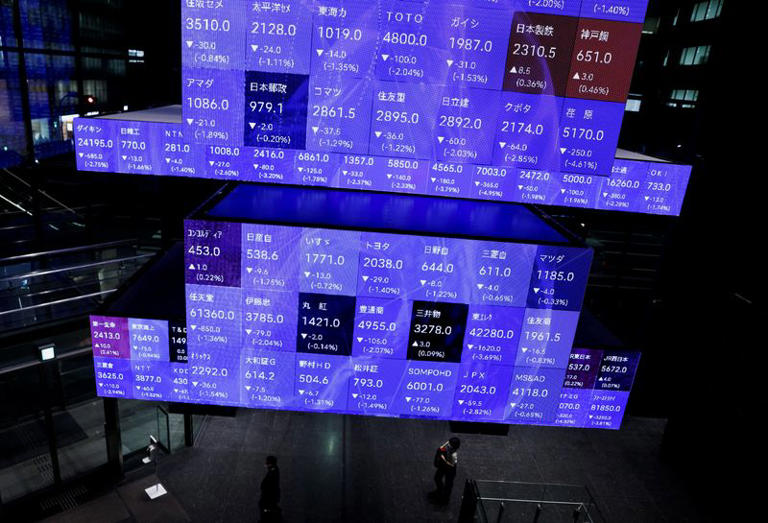The analysis from U.S. banks Morgan Stanley and JP Morgan highlights concerns about potential overheating in Japan’s equity markets, particularly in relation to overcrowded long positions in top-performing stocks. The strategists point out that the growing popularity of large-cap stocks among overseas investors, along with trend-following trading strategies, has led to inflated valuations in certain sectors such as semiconductors and banks.
Despite the backdrop of Japan’s record-breaking stock market performance, driven by optimism surrounding economic growth and corporate governance improvements, there are indications that the market may be vulnerable to a sell-off. The exit of the Bank of Japan from its negative rates policy has added to the positive sentiment but has also raised concerns about the sustainability of the rally.
The reduction in long positions by trend-following commodity trading advisors (CTAs) suggests a potential shift in market dynamics, as these investors have already reached high levels of exposure to Japanese equities. This could signal a plateau in buying activity, limiting further upside potential for certain stocks.
Morgan Stanley’s observation of a moderation in the performance of large-cap Japanese stocks in March, compared to the previous month, underscores the notion that momentum may be waning in certain sectors. This is particularly notable in industries such as semiconductors, automobiles, and financials, which have experienced significant gains in recent months.
The surge in share prices of index heavyweights like Tokyo Electron, Toyota Motor Corp, and Mitsubishi UFJ Financial Group has contributed to the overall bullish sentiment in the Nikkei index. However, concerns about stretched valuations, indicated by the Nikkei’s forward price-earnings ratio surpassing its historical average, raise questions about the sustainability of the market’s current trajectory.
In summary, while Japan’s equity markets have experienced remarkable growth, fueled by positive economic factors and investor optimism, the presence of overcrowded long positions and stretched valuations pose potential risks to further upside. Investors will likely monitor developments closely, particularly regarding any signs of unwinding positions or shifts in market sentiment.
